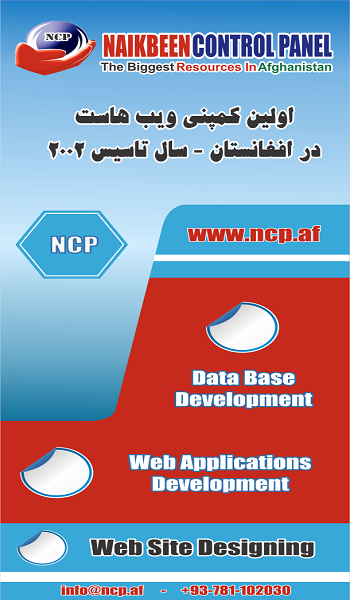The United Nations Assistance Mission in Afghanistan (UNAMA) is a UN Special Political Mission established to assist the state and the people of Afghanistan in laying the foundations for sustainable peace and development. UNAMA was established on 28 March 2002 by United Nations Security Council Resolution 1401. Its original mandate was to support the implementation of the Bonn Agreement (December 2001). Reviewed annually, this mandate has been altered over time to reflect the needs of the country and was extended for six months, on 17 September 2021, by UN Security Council Resolution 2596 (2021).
The Council also requested the Secretary-General to prepare a written report by 31 January 2022 outlining “strategic and operational recommendations for the mandate of UNAMA in light of recent political, security, and social developments” in Afghanistan.
UNAMA is headed by the Special Representative of the Secretary-General (SRSG) for Afghanistan, Deborah Lyons, who was appointed to the post in March 2020, replacing Tadamichi Yamamoto. Previous SRSG’s were– Lakhdar Brahimi who served from October 2001 to January 2004; Jean Arnault from February 2004 to February 2006, followed by Tom Koenigs from March 2006 to December 2007, Kai Eide from 2008 to 2010, Staffan di Mistura from 2010 to 2011, Ján Kubiš from 2012 to 2014, Nicholas Haysom from 2014 to 2016 and Tadamichi Yamamoto from 2016 to 2020.
Since 2008, and following a directive of the UN Secretary-General, UNAMA is an integrated mission. This means that the Special Political Mission, all UN agencies, funds and programmes, work in a multidimensional and integrated manner to better assist Afghanistan according to nationally defined priorities.
The SRSG is responsible for all UN activities in the country and directly oversees the Security Section, Strategic Communication Service, Human Rights Section, and Peace and Reconciliation. The SRSG’s Chief of Staff oversees UNAMA’s Field Offices.
Two deputy Special Representatives (DSRSG) oversee the main pillars of the mission – political and developmental issues. Included under these pillars are mission sections specializing in issues such as political analysis, reporting, and outreach, and donor coordination, as well as the coordination of UN agencies funds and programmes.
Within delegated authority, the Transport Assistant will be responsible for the following duties:
• Processes work orders. Follows up in accordance with SOPs.
• Assists in ensuring workshop staff complete appropriate maintenance as per work order taking into consideration vehicle make, model and Km usage. Assists in conducting after repair practical road tests to ensure that successful and safe repairs have been carried on UNAMA vehicles. Addresses routine issues. Escalates more complex issues to the attention of the supervisor.
• Assists in conducting practical driving tests in order to ensure that successful candidates are capable of safely driving the mission vehicle for which they are licensed in accordance with all roads traffic, rules and regulations, both local and UN, applicable in the mission area.
• Update and maintains a detailed database of UN workshop tools/special equipment and requests for replacement where warranted.
• Prepares UN vehicle accident reports. Monitors driving performance records and provides updates on a regular basis.
• Complete monthly insurance and accident reports.
• Generates reports from the electronic vehicle monitoring system (EVMS) & Fleet Log and other reports as required
• Carries out any other duties as assigned.
Education: High school diploma or equivalent is required.
Work Experience: A minimum of three (3) years of progressively responsible progressively responsible experience in vehicle maintenance and workshop supervision is required. Valid driving license B1 minimum required.
Languages: English and French are the working languages of the United Nations Secretariat. For the position advertised, fluency in oral and written English is required. Fluency in oral and written Pashto/Dari is required.
Special measure: The minimum work experience for GL-4 with a high school diploma is reduced to two (2) years, instead of the standard minimum required work experience of three (3) years, and it is reduced to one (1) year with a relevant university degree (Bachelor/Master). The special measure is extended until 31 December 2022 reduces the minimum required years of relevant work experience for filling positions for UNAMA General Service and National Professional Officer positions. The special measure is applicable to all applicants.
Professionalism: Shows persistence when faced with difficult problems or challenges. Shows pride in work and in
achievements; demonstrates professional competence and mastery of subject matter; is conscientious and efficient in meeting commitments, observing deadlines and achieving results; is motivated by professional rather than personal concerns; shows persistence when faced with difficult problems or challenges; remains calm in stressful situations.
Teamwork: Works collaboratively with colleagues to achieve organizational goals. Solicits input by genuinely valuing others’ ideas and expertise; is willing to learn from others. Places team agenda before personal agenda. Supports and acts in accordance with final group decision, even when such decisions may not entirely reflect own position. Shares credit for team accomplishments and accepts joint responsibility for team shortcomings.
Client Orientation: Considers all those to whom services are provided to be “clients” and seeks to see things from clients’ point of view. Establishes and maintains productive partnerships with clients by gaining their trust and respect. Identifies clients’ needs and matches them to appropriate solutions. Monitors ongoing developments inside and outside the clients’ environment to keep informed and anticipate problems. Keeps clients informed of progress or setbacks in projects. Meets timeline for delivery of products or services to client.
Technological Awareness: Keeps abreast of available technology. Understands applicability and limitations of technology to the work of the office. Actively seeks to apply technology to appropriate tasks. Shows willingness to learn new technology.
UNAMA will only accept properly completed and signed Personal History Form (P.11) received by email before the closing date. CVs or Resumes will not be considered nor will late submissions after closing date. Any information provided on the P.11 form will be considered binding.
Applicants must accurately complete, sign and date the United Nations Personal History form (P.11) and submit the duly completed signed P.11 by e-mail to: unamava_support@un.org
• Important Note: Applicants should copy and paste the Vacancy Announcement (VA) Number which is VA#90/11/2022 into the email subject line when submitting the duly completed and signed P.11 Form and the required documents. Click on the link below to download the blank P11 https://www.acbar.org/upload/1459846966659.doc
Please do not add any other information in the subject line of your email except VA#90/11/2022. Please do not add any additional words or space in the VA Number. Applications received without a VA Number will not be considered.
• The selected candidates will be subject to a reference checks process to verify the information provided in the P.11 form.
• Only applicants who are short-listed will receive an acknowledgement within four (4) to six (6) weeks from the deadline indicated on the VA.
Required documents to be submitted along with the signed and completed UN P.11:
• Serving UN staff members: In addition to the completed and signed P.11, scanned copies of two most recent e-Performance Evaluation Reports must be submitted with the application.
• For External applicants: In addition to the completed and signed P.11, scanned copies of two most recent performance evaluation reports or if not available, two reference letters. If the applications received do not contain the latest two performance evaluation reports candidates must provide a short explanation as to why they are not available.
unamava_support@un.org

